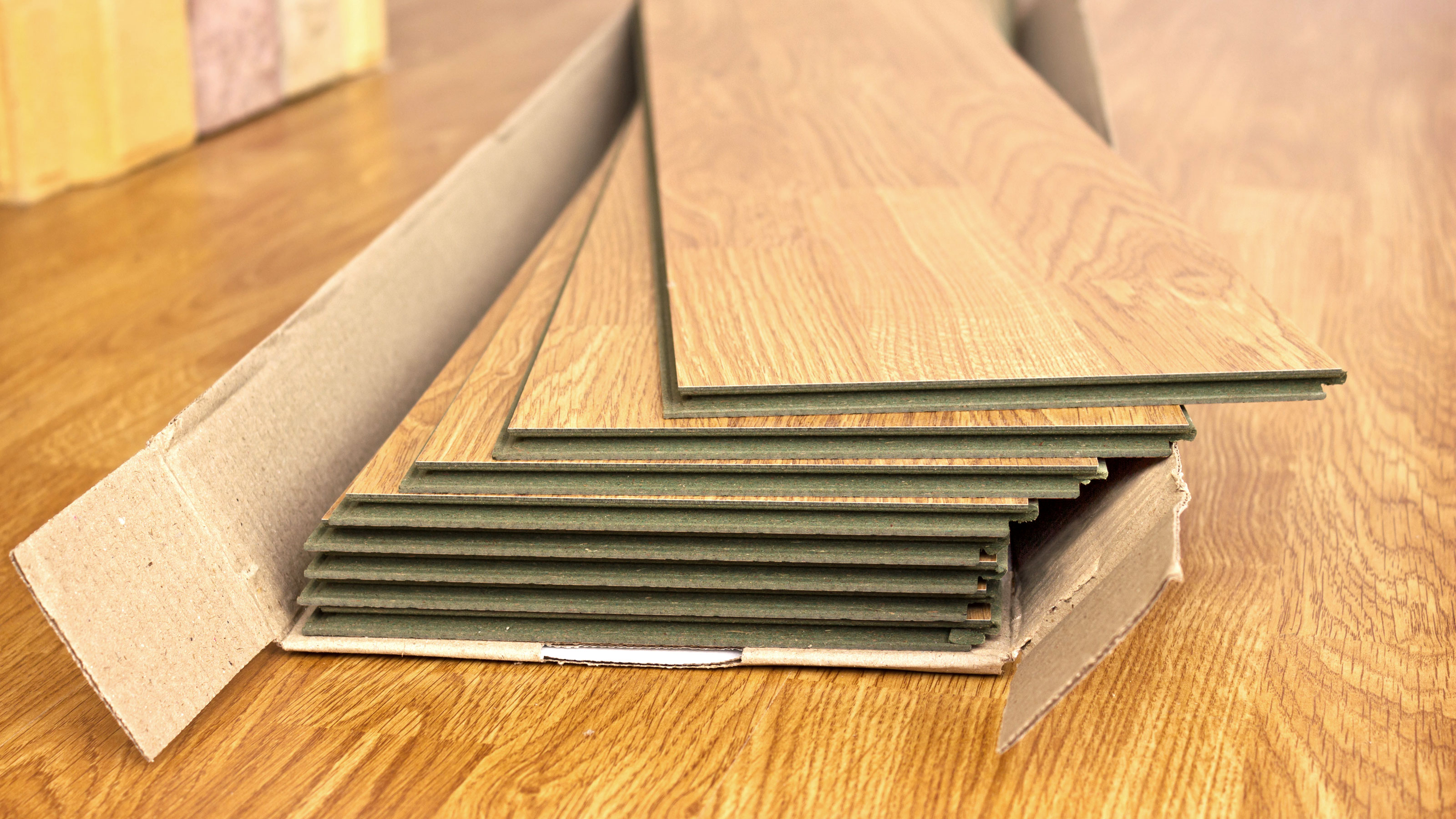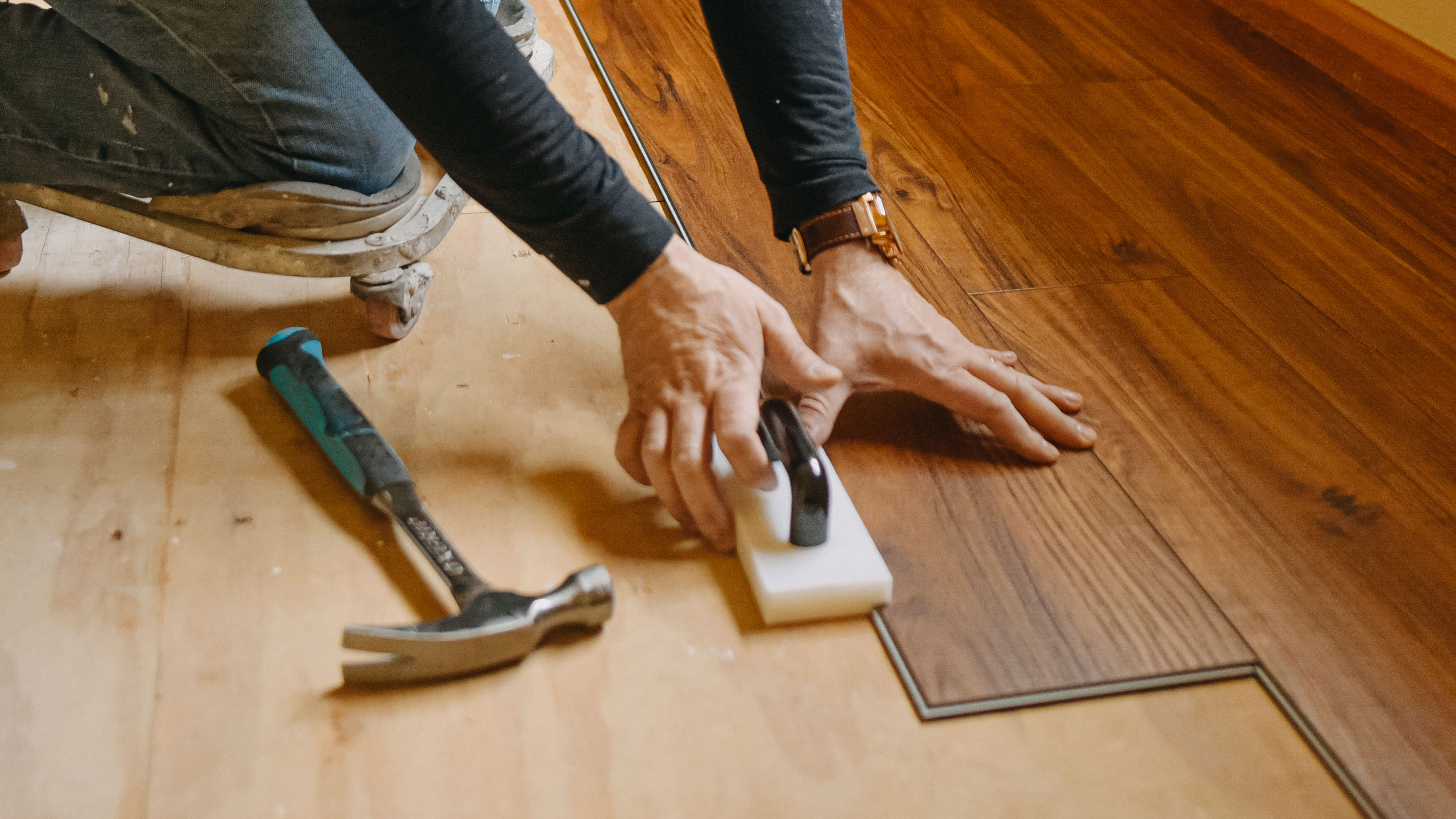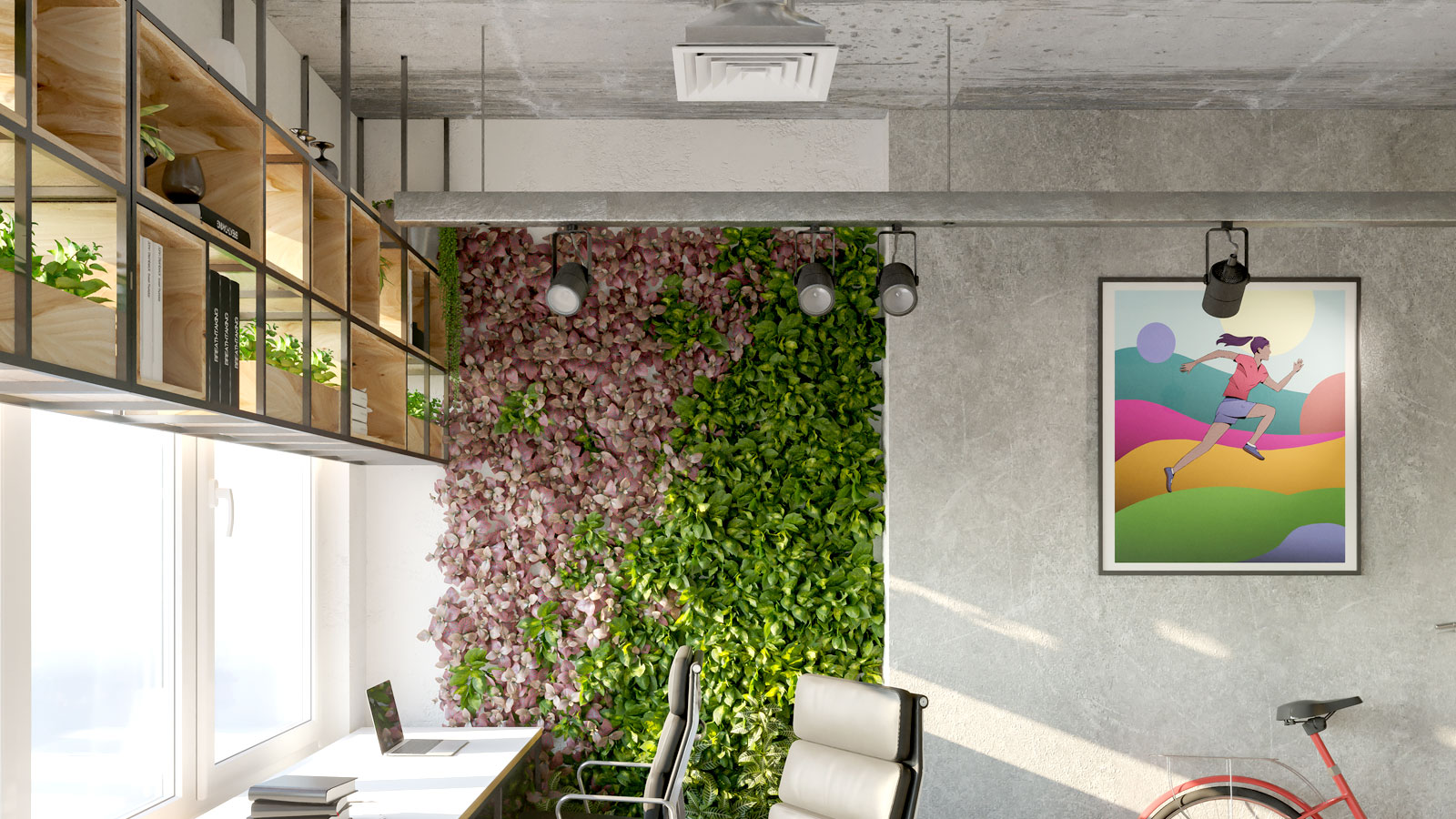What is laminate flooring and what is it made from?
What is laminate flooring? We give you the answers to the common questions that every DIYer and home renovator asks

On the face of it, what is laminate flooring is a simple question with a relatively simple answer. But look past the obvious and there’s some questions of which the answers can help you make an informed choice when looking to buy new laminate flooring for your latest home project.
What is laminate flooring made of? Can I put laminate flooring in my bathroom? How long does laminate flooring last? How do I lay laminate flooring? Can I do it myself? These are just a few of the common questions that get asked when considering laminate flooring for a project. Here we look to answer these questions and more.
What is laminate flooring: A comprehensive definition
Laminate flooring is typically a synthetic type of flooring with a decorative top layer that mimics a real finish such as wood or stone. It is made from multiple layers with the main layer being made from a high density fibreboard (HDF).
This gives the flooring its strength and structure. The thicker the board the stronger it is and the denser the board the more hard wearing it is. The edges are commonly shaped to create a click and lock method for installing the flooring.
The decorative top layer is the layer that gives it its look, commonly replicating natural materials. This is typically covered by a transparent wear layer which protects the decorative layer. This layer varies in strength depending on its AC (Abrasion Criteria - though known by other names) rating. For the home a rating of AC2 or AC3 is a good choice with AC3 ideal for heavy traffic areas.
Finally, the underneath of the board commonly has a backing layer, which helps resist moisture and hold it securely in place. Cheaper laminate flooring doesn’t always have this layer, which can shorten its lifespan.
Can I put laminate flooring in my bathroom?
You can install laminate flooring in your bathroom but if you are wanting to know: 'is laminate waterproof' The answer is that the top layer is resistant to water but general everyday laminate flooring is not totally resistant to water throughout. When laid it will have small gaps between the planks which can let water in and once you have water ingress it will affect the integrity of the fibreboard core, which over time will weaken, swell and warp. To help ensure that water ingress doesn’t happen you will need to clean up any standing water on the floor as soon as possible.
There are laminate floor brands that claim to be waterproof, but this typically refers to the wear layer on top of the board and not the entire board. The alternative is to use vinyl flooring as this is laid as a whole piece so there is much less chance of water ingress.
Can you put new laminate over old laminate flooring?
While it is possible to install new laminate over old laminate flooring but doing so is not recommended. Typically you will be installing new laminate flooring because the old flooring has worn and is no longer wanted. So it makes sense to remove the old floor, before installing a new one. This will leave you with a solid, clean base to work with and the option to install new underlay if needed.
Installing a new floor on top of an old floor will also raise the height of the floor, so you might need to trim doors so that they open properly. If fitting in a kitchen – under cabinets – you will have issues with fixed worktops too. The alternative is to cut and fit up to the plinth or kickboard on the bottom of a cabinet.

How long does laminate flooring last?
As a general guideline properly installed laminate flooring ideas should last 10-25 years. But its longevity will depend on a number of factors including the quality of the flooring you choose, how well it is installed, how much it is used and how it is cared for.
A high quality, well installed, well maintained laminate floor in a low traffic area like a bedroom or home office will last a lot longer than a floor in a high traffic area. These areas will wear out much quicker and need replacing sooner.
How do you clean laminate flooring?
Keeping your laminate flooring looking good is relatively simple. The first step is to give it a thorough sweep with a soft bristle brush. Alternatively, use a vacuum to get rid of dust, loose dirt and debris.
Once you have cleared away dust and debris you need a mop like this E-Cloth Deep Clean Mop from Amazon to wash the floor clean. Use water warm with a dash of white vinegar. Using an abrasive cleaner will dull the surface of the laminate. For stubborn stains try a microfibre cloth and WD-40 on the area.
How much does laminate flooring cost?
The prices can vary greatly depending on the quality and finish of laminate flooring you choose. At the lower end of the laminate flooring costs scale expect to pay around £10m2 for flooring like the Eurohome Water Resistant Dark Brown Oak effect Laminate Flooring from B&Q. For higher quality laminate flooring expect to pay around £30 per square metre.
Make sure to check out our 10 common mistakes when laying laminate flooring guide to help make sure that you don’t double or triple your flooring costs.
If you are looking to get a professional in to lay your laminate flooring expect to pay around £30 per hour or around £250 a day.
Get the Homebuilding & Renovating Newsletter
Bring your dream home to life with expert advice, how to guides and design inspiration. Sign up for our newsletter and get two free tickets to a Homebuilding & Renovating Show near you.
Steve Jenkins is a freelance content creator with over two decades of experience working in digital and print and was previously the DIY content editor for Homebuilding & Renovating.
He is a keen DIYer with over 20 years of experience in transforming and renovating the many homes he has lived in. He specialises in painting and decorating, but has a wide range of skills gleaned from working in the building trade for around 10 years and spending time at night school learning how to plaster and plumb.
He has fitted kitchens, tiled bathrooms and kitchens, laid many floors, built partition walls, plastered walls, plumbed in bathrooms, worked on loft conversions and much more. And when he's not sure how to tackle a DIY project he has a wide network of friends – including plumbers, gas engineers, tilers, carpenters, painters and decorators, electricians and builders – in the trade to call upon.

